Don't Assume - a talk podcast hosted by Zakia
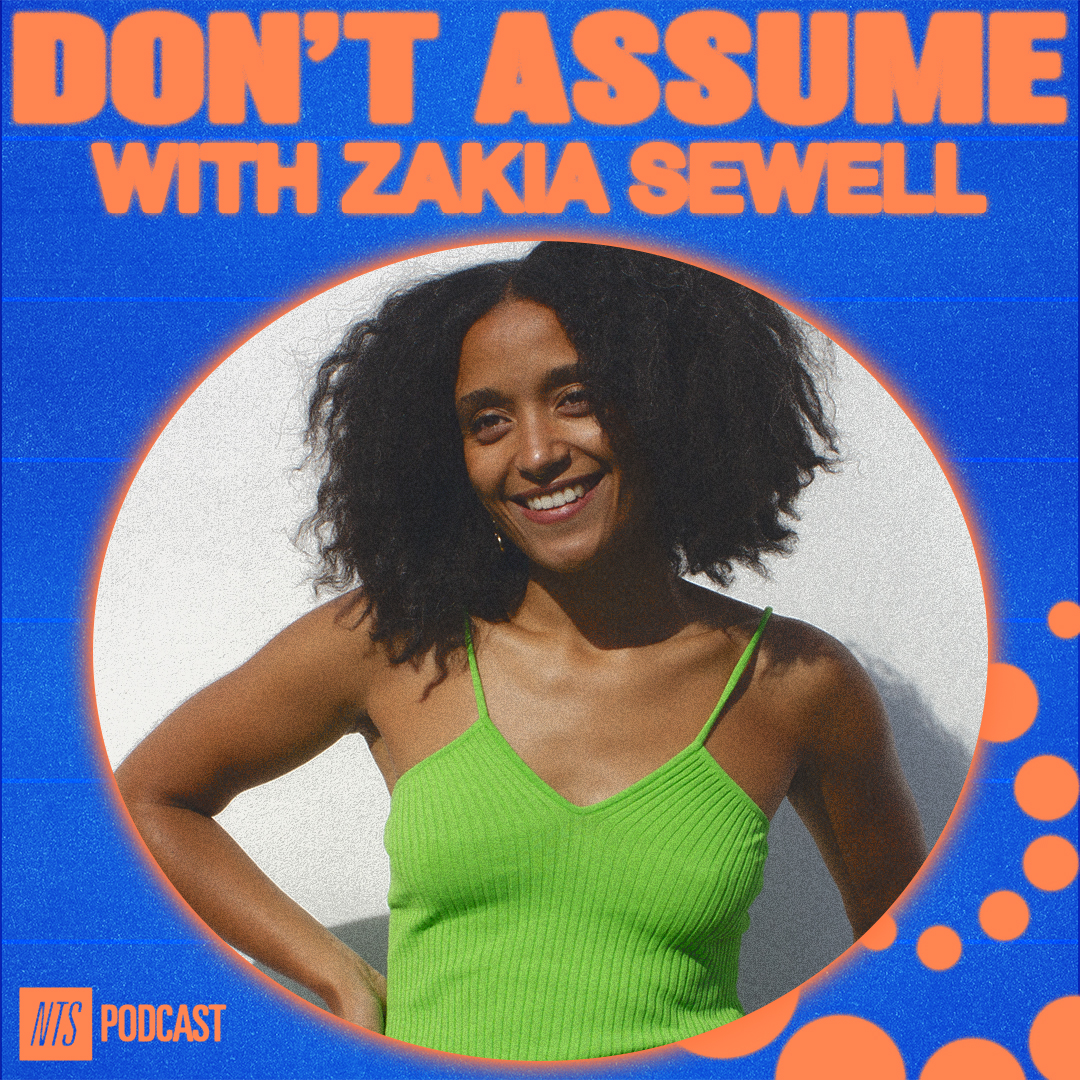
Don't Assume is an interview podcast by NTS, hosted by Zakia.
Moving beyond the scope of the traditional NTS Radio format, Don’t Assume is a long-form interview series: a free flowing conversation with a different musical pioneer, disruptor and innovator, where they discuss their lives and music.
To listen and follow Don’t Assume, just search for NTS Don’t Assume on your preferred podcast platform or add this RSS feed to your podcast app of choice.
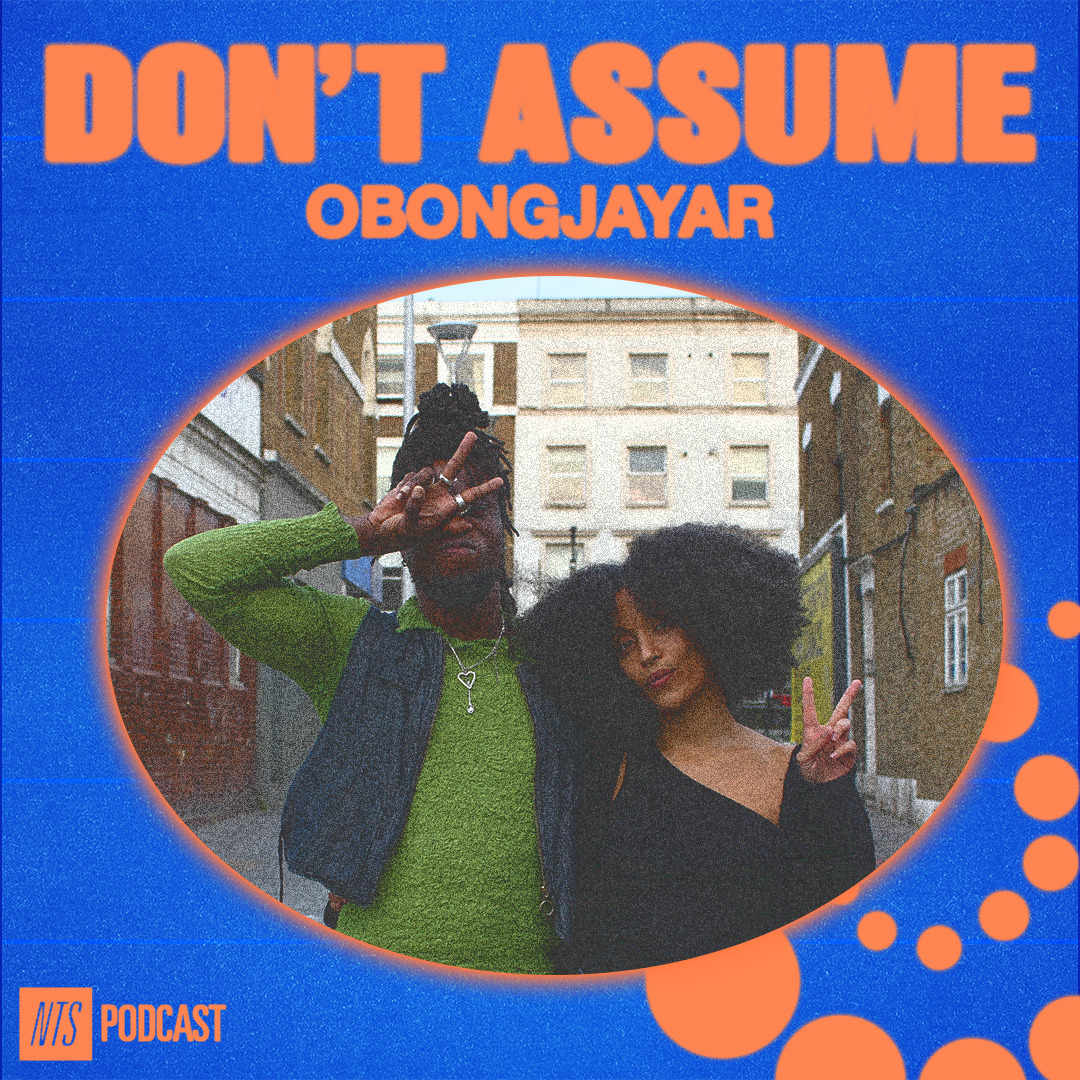
Season 2 Episode 8: Obongjayar
If you don’t yet know the name Obongjayar, you will. Since emerging in 2016 he’s made a series of gradual but intentional moves, launching his debut album in 2022 and collaborating with some big hitters like Little Simz, Pa Salieu, Danny Brown and Fred Again.
Growing up in Nigeria where power cuts were a regular occurrence, he would often only catch half a song on the radio before the electricity went out but finish it in his head. Here he explains how this knack for filling in the gaps continued after he moved to England aged 17, picking up new influences at uni in Norwich before dropping his rapper persona to discover his true voice: Obongjayar, meaning king and junior.
His songs swing from the political to the poetic and are often deeply personal. He tells Zakia the backstory to one song in particular, ‘I Wish It Was Me', a beautiful track about the love and jealousy he harbours for his little brother, which he played for his family for the first time on film.
Family, music and faith are woven throughout this conversation with plenty of Don't Assume moments including the fact that OB was, and still is, a massive Westlife fan, and that his first band was a Christian rap outfit at school. You heard it here first.
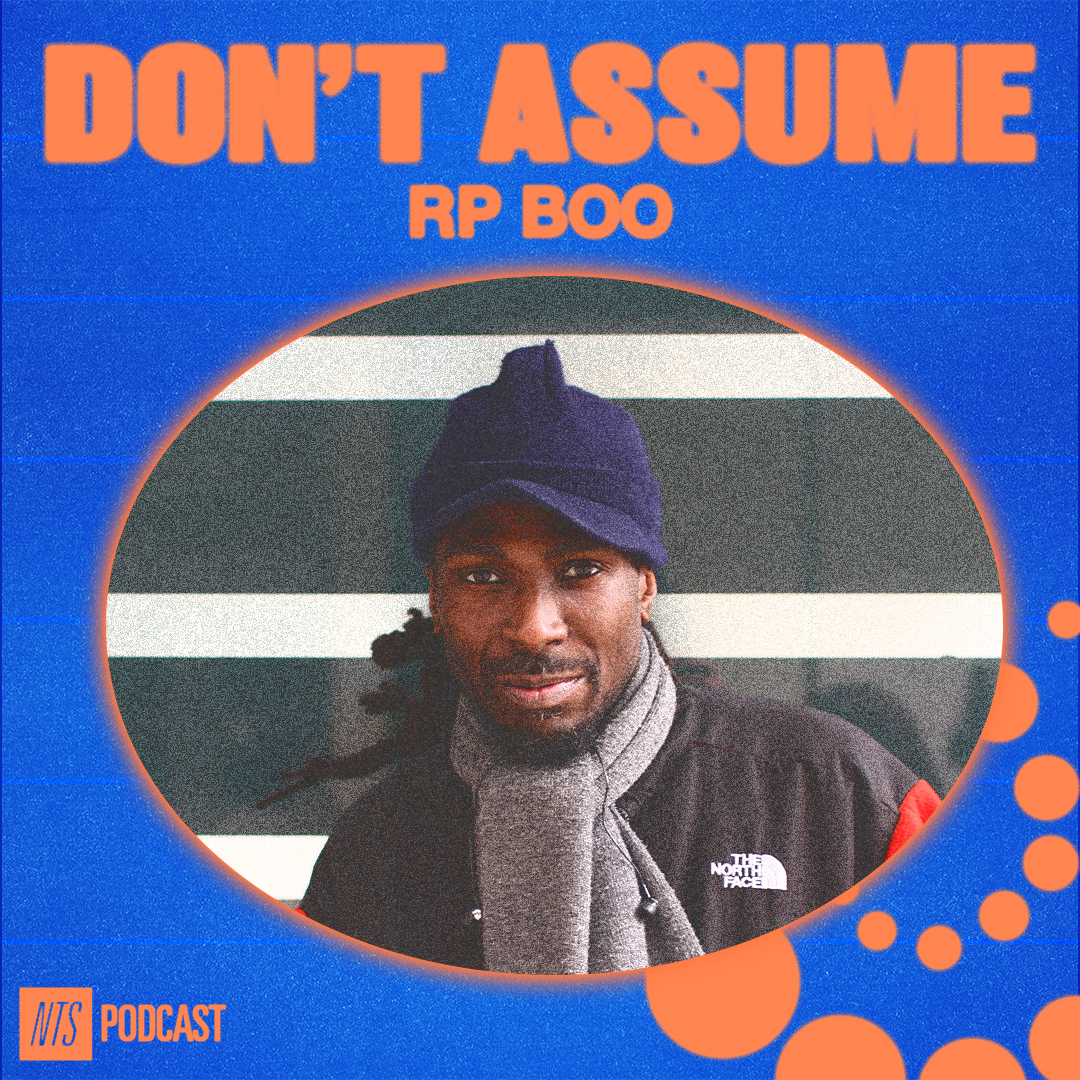
Season 2 Episode 7: RP Boo
Is this the happiest man in dance music? Kevain Space, better known as RP Boo, is widely regarded as one of the originators of footwork, a high-energy, syncopated form of electronic dance music from Chicago. Starting his career in the 1990s, RP Boo started out as a dancer and a DJ before developing his signature sound, which blends rapid beats, chopped-up samples, and frenetic rhythms designed to accompany fast-paced footwork moves.
In this Don’t Assume interview Zakia and Boo get into the origins of Footwork in West Chicago, how the music evolved in lock step with the dancefloor and the influence of one dancer in particular who they were always trying to outpace. Boo talks about getting inspiration from the everyday, making songs out of the drinks machine at the garage where he worked or from overhead snatches of conversation.
Boo’s energy is infectious, busting moves from the moment he got in, despite just having landed from Chicago and getting Zakia up to teach her some footwork basics. His take on life is that you can be spiritual while having fun, words to live by.
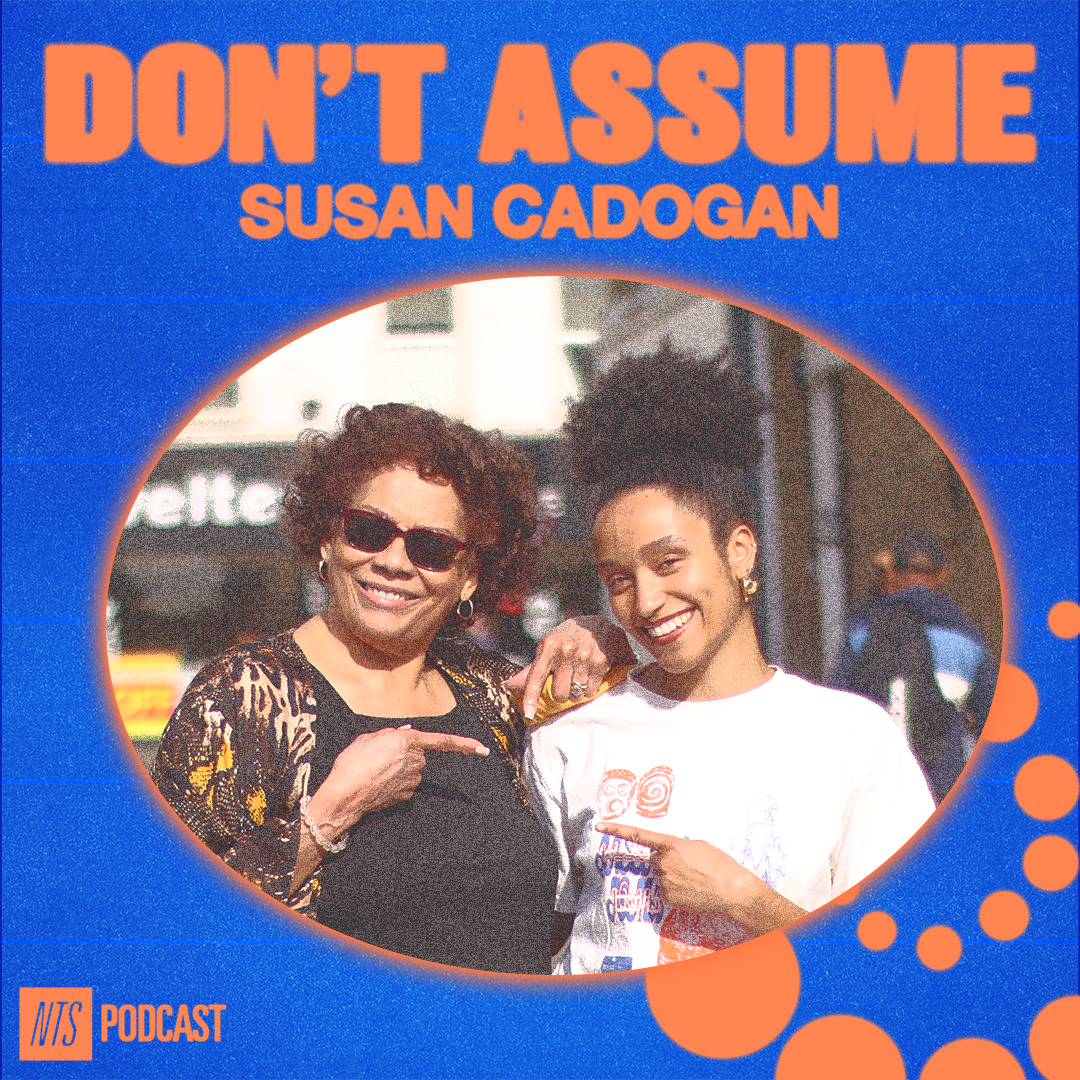
Season 2 Episode 6: Susan Cadogan
A short-sighted librarian who prides herself on being responsible, reliable and getting home early, Anne ‘Susan’ Cadogan might have been a surprising match for the legendary producer Lee ‘Scratch’ Perry. But it was her version of Hurt So Good, produced by Scratch in 1975, that saw Susan catapult to fame. As the song rose up the UK charts, Susan found herself on a flight out of Jamaica and booked to appear on Top of the Pops.
It was her first brush with pop stardom but Susan was determined to do it her way. She refused to wear the revealing clothes pushed by the costume department, refused their choreographed dance moves, and barely wore any make up. Her performance remains one of the most arresting of the time, foreshadowing the arrival of the Lovers Rock scene.
Susan is a brilliant storyteller. In this interview with Zakia she discusses her split personality between Anne, the dedicated librarian, and Susan, the performer, the early days of the Black Ark studio, passing the chalice with John Holt, and whether there might be love on the cards with the original writer of Hurt So Good.
Like many Jamaican performers, Susan never received any royalties for Hurt So Good. She discusses her frustrations around the music industry but how she still holds our hope for a cheque in the post. Despite that and the physical challenges of older age, Susan is still performing. In this sparkling interview Susan proves herself to be equal parts steely and sweet. Watch out toyboys.
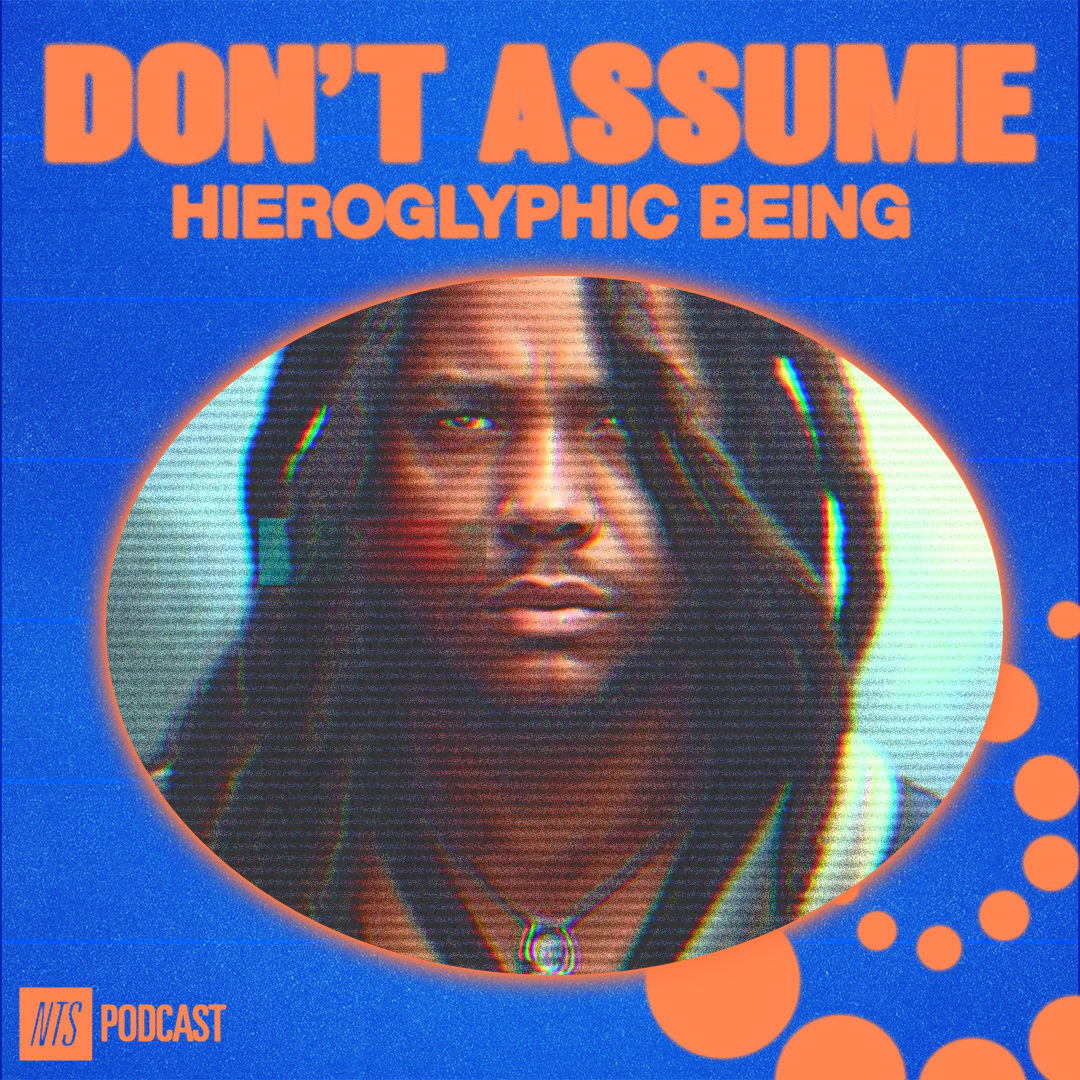
Season 2 Episode 5: Hieroglyphic Being
Jamal Moss has been making music in Chicago under the moniker Hieroglyphic Being since 1994. His music is deeply rooted in the influential house and techno scenes of the city but also draws on the avant-garde and jazz. His music is both dark and transcendent, mechanical and organic.
In this interview he unpacks the origins of these dualities, describing how he was raised by his adopted parents on the city’s jazz greats but discovered dance music in the club aged 12 after being brought along by an uncle who had business to attend to. Too young to enter the building, the young Jamal felt the vibrations from outside, and he was hooked. We learn about his early days running club nights in Chicago, how his adopted father’s position in the Masons gave him certain insight on the inner workings of the city, his unapologetic days as a gigolo and his rejection of the term AfroFuturist. Oh and he also dabbles in nanotechnology.
Hieroglyphic Being makes music to serve humanity, and when he’s not doing that you’ll find him throwing avocados at squirrels. Don’t Assume.
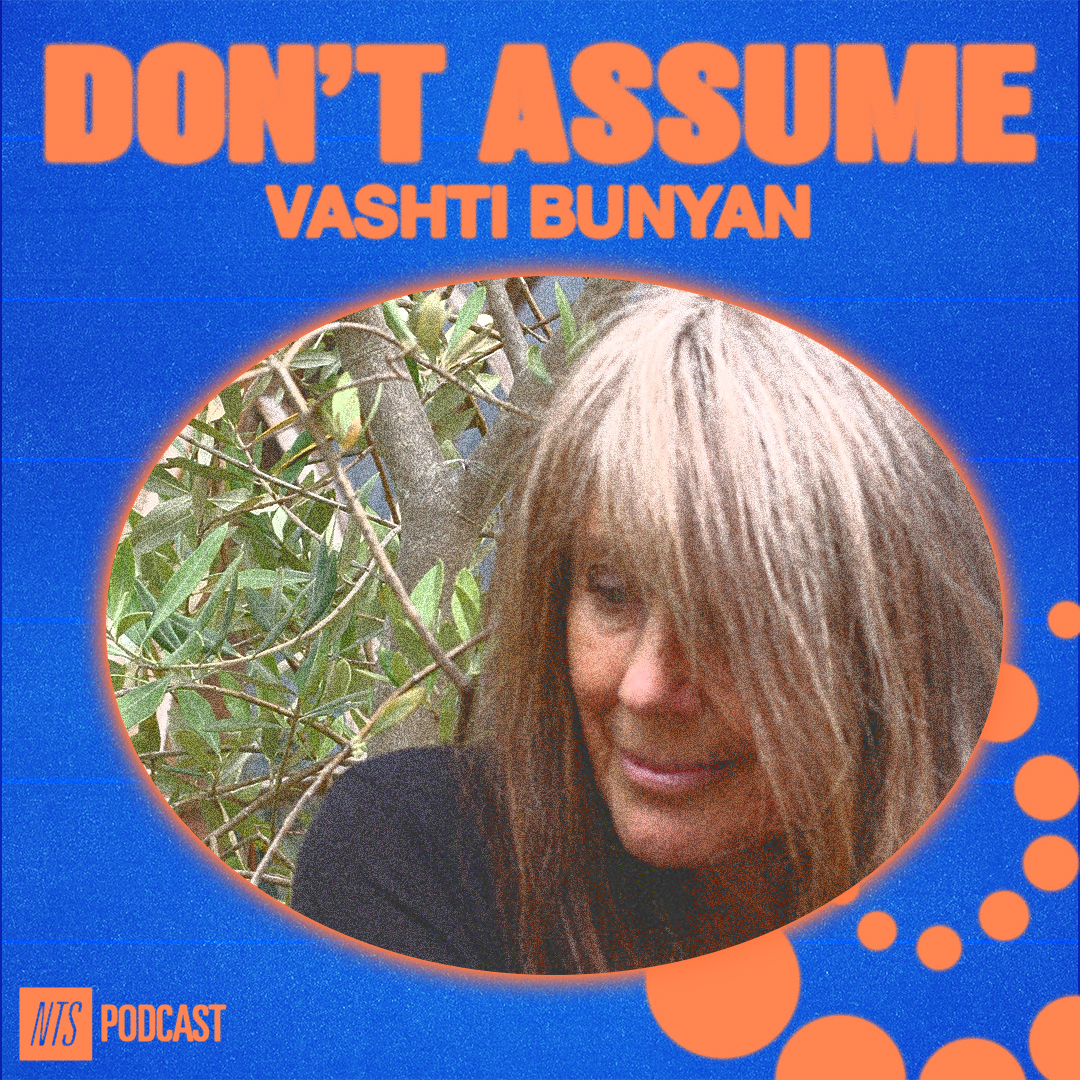
Season 2 Episode 4: Vashti Bunyan
In the 1960s Vashti Bunyan burned all her possessions, saddled up a horse and cart and set off for Donovan’s Scottish island with her boyfriend. So far, so pastoral. But Vashti’s story is not a counter cultural fantasy, and Vashti is not the folksy heroine people assume she is.
Vashti was born in 1945 in Newcastle, named after a rebel queen from Persia and she lives up to her namesake’s reputation. The singer-songwriter started out with ambitions to be a popstar, but was quickly disillusioned by the music industry. After releasing a few singles which fell on deaf ears, she set out on her now infamous horse-drawn journey to Donovan’s commune on the Hebrides. Along the way she wrote her debut album, Just Another Diamond Day. It was largely ignored on release but when it was re-issued in 2000 it gained a cult following and is now considered a psych-folk classic, lauded for its delicate beauty, even though folk was never a genre Vashti related to.
In this real meeting of minds, Vashti and Zakia talk about Vashti’s punk approach to quiet music, her experience of being rejected from a class on music technology for being ‘too old’ and the importance of dreaming for a better future. It’s fair to say that Vashti continues to do things her own way and her own, softly-spoken version of a rebel queen.
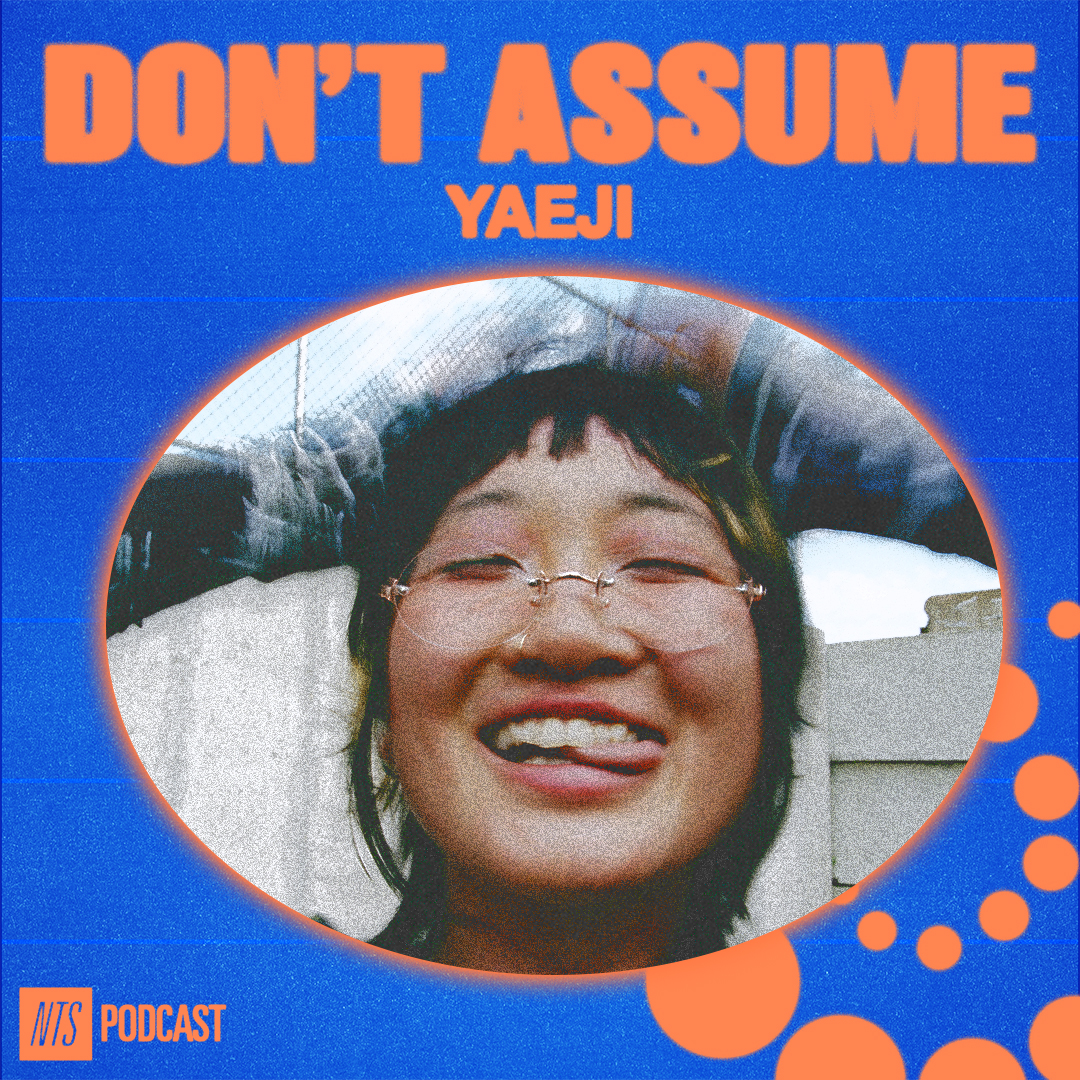
Season 2 Episode 3: Yaeji
Bedroom producer turned global club-pop icon Kathy Yaeji Lee, better known as Yaeji, is our guest this week. Yaeji self-identifies as an “introspective loner” and was raised between New York and Seoul. In this interview she reflects on how her upbringing has influenced the music she makes today: whether that’s listening to her dad’s mixtapes of Korean indie ballads, finding community in internet forums or getting into the brostep scene for her radio show in Pittsburgh. She started out DJing and later became a producer, known for her introspective yet danceable beats, and vocals which swing between Korean and English.
Where some of our Don’t Assume guests struggle to think of any surprising hobbies outside of music, Yaeji was spoiled for choice. She’s a prolific journaler, with multiple journals on the go at any one time. She’s also into fibre art, where she collects fibres from across the world and weaves them into yarn to knit or crochet into fabric. Whilst this sounds like a departure from the songs featured on albums like With A Hammer, it all feels like a continuum of Yaeji’s lifelong process of observing, gathering and reassembling the multiple facets of her identity to create something new.
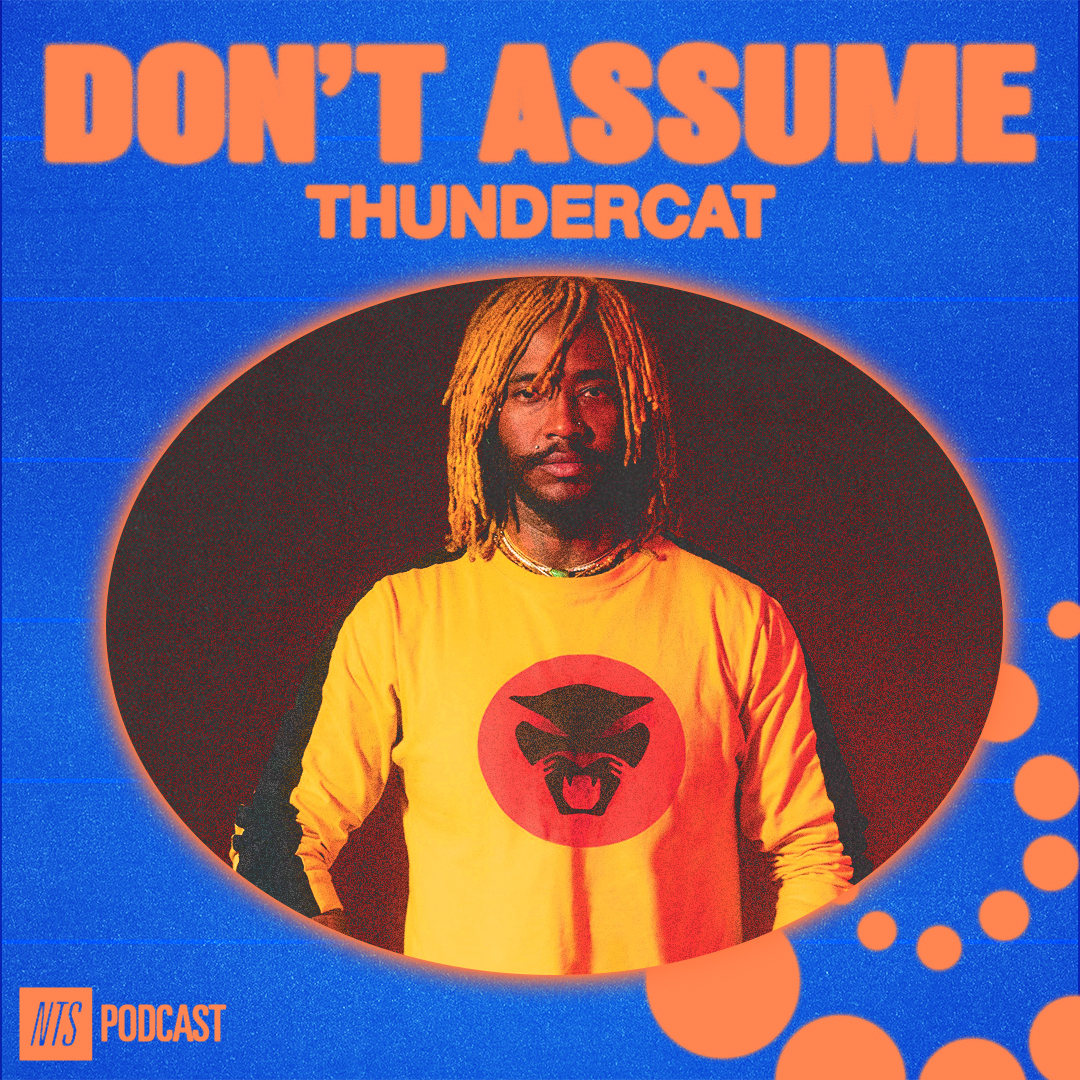
Season 2 Episode 2: Thundercat
Thundercat doesn’t follow the rules. From his tattoo of the word NO, to his genre-bending playing and extensive collection of cat hair, he's an artist who keeps us guessing and is the perfect guest for Don’t Assume.
The bassist, singer, and producer has become a key figure in the West Coast jazz, funk, and R&B scene alongside the likes of Kamasi Washington and Flying Lotus. Known for his virtuoso playing and falsetto voice, Thundercat actually cut his teeth playing bass in the thrash metal band Suicidal Tendencies. He traces a line from there to the psychedelic, jazz-infused R&B that he’s loved for today, as he and Zakia discuss being the weird kids in school, how all musicians want to be comedians and his quest for extra pickles.
Thundercat has benefited from some incredible collaborators along the way including Kamasi Washington, Mac Miller, Erykah Badu, Flying Lotus and Kenrick Lamar, here he reflects on the impact they’ve had on his career. He’s a mercurial talent, and over the course of the interview he dances between references, funny asides and reflections on grief, all grounded in what is clearly a sincere love and respect for music.
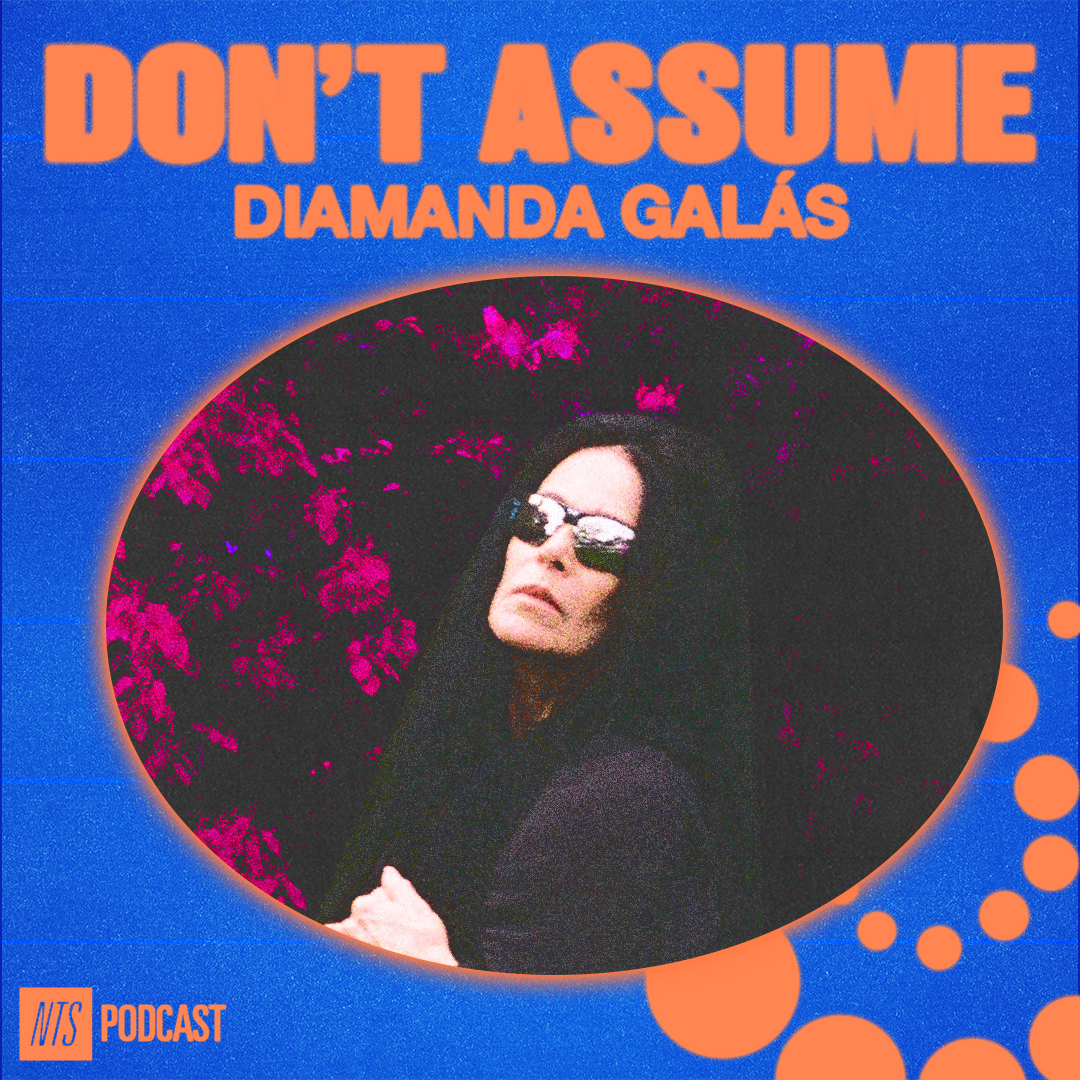
Season 2 Episode 1: Diamanda Galás
Diamanda Galás is one of a kind. The Greek-American artist is known for her uncompromising approach and singular, multi-octave voice. Her work often channels the pain of the dispossessed, giving emotionally charged performances that explore subjects like the AIDS crisis, the Greek-Armenian genocides and experiences of grief. But she is equally at home singing jazz standards and blues songs. We couldn’t think of a better artist to launch this series of Don’t Assume, a podcast which reveals the sorts of things you’d never expect from our favourite artists.
In this lively conversation, Zakia and Diamanda travel across the expanse of Diamanda’s wide ranging career, discussing everything from her collaboration with John Paul Jones, the influence of her strict father, her mistrust of the term “avant-garde” and her love of forensic TV shows.
Diamanda is equal parts deeply serious and acerbically funny, swinging between reflecting on her regrets to lacerating the ‘bubble gum crap’ of the Beatles. This interview feels like a true meeting of minds, and a chance to see both sides of this formidable artist, truly someone who embodies the spirit of this new series of ‘Don’t Assume’
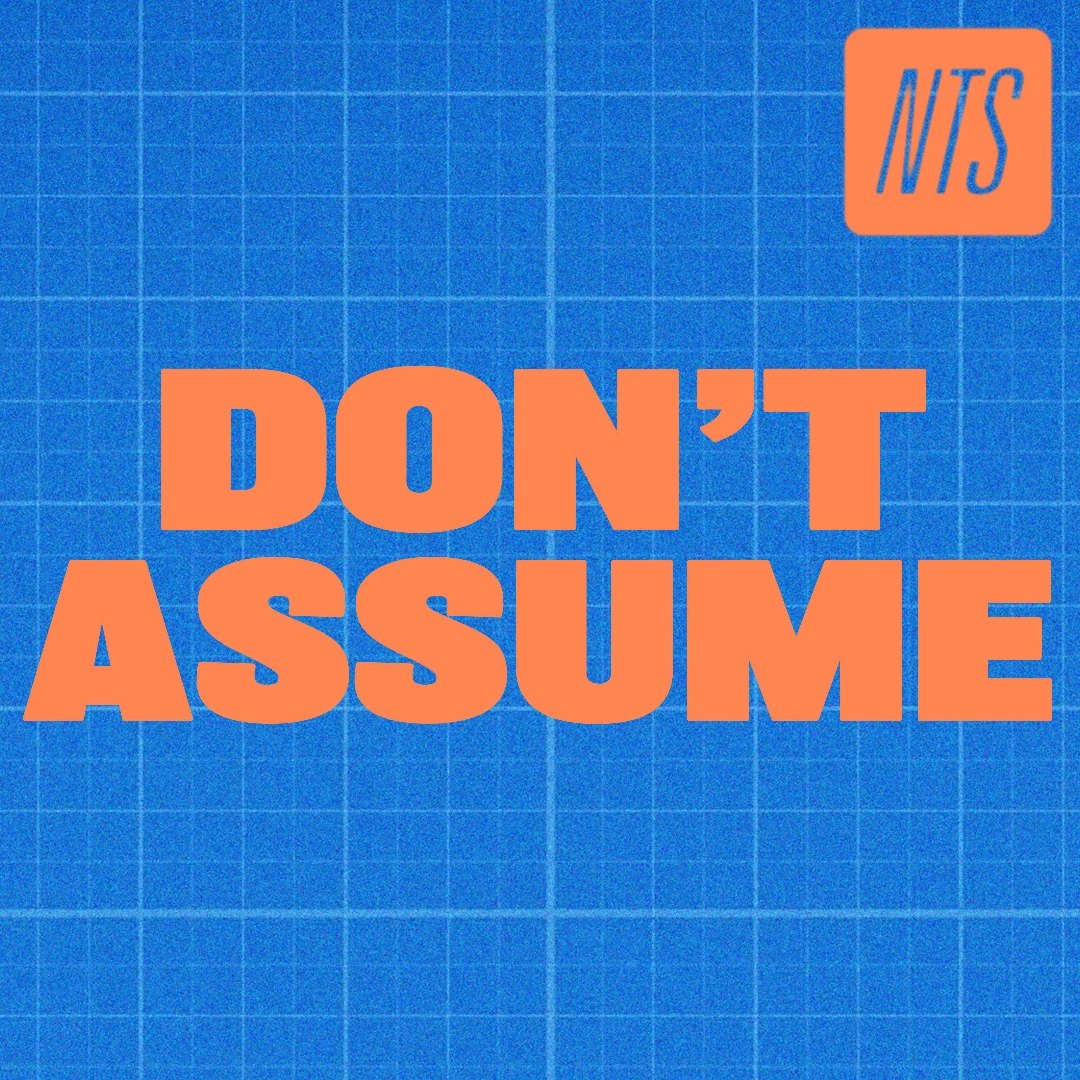
Don't Assume: Season 1
Season 1 Episode 6: Lisa Maffia (So Solid Crew)
Lisa joins Zakia in the NTS studio in London to reflect on Lisa’s younger years and the early days of So Solid Crew, through to Lisa’s solo career. Lisa and Zakia discuss the highs and lows of So Solid’s journey, which took them from DIY pirate radio to the Brit Awards and countless other accolades. Along the way they drew criticism from the British press, and they fell victim to the Metropolitan Police’s punitive 696 form, which all but shut down their scene. In this Don’t Assume interview, Zakia and Lisa celebrate the lasting legacy of UK Garage and its celebration of Black Britishness.
Season 1 Episode 5: Mark Mothersbaugh (Devo)
Mark Mothersbaugh is the co-founder and lead singer of iconic American new-wave band, Devo. As the band embark on a global tour, Mark and Zakia reflect on the first 50 years of Devo and they speculate on what the next 50 years of the band will look like. Mark recalls some of his successful moments of subversion; placing subliminal messages into soda commercials and his other film and TV commissions.
Season 1 Episode 4: Lloyd Bullwackie
In this podcast Zakia talks to legendary producer Lloyd Barnes, a.k.a Bullwackie, best known for his engineering work with many of reggae and dub music's greats, as well as opening the first reggae studio in New York City: Wackie’s House of Music. In this episode of Don't Assume, Bullwackie and Zakia reflect over his expansive five-decade-long career, and the exciting new discovery of a stolen archive of unreleased Wackie’s recordings, which Lloyd is now in the process of finally mastering.
Season 1 Episode 3: Amaarae
Accra-via-Atlanta rising alt pop sensation Amaarae is the subject of this episode of Don't Assume, where host Zakia discusses the release of her acclaimed new album, Fountain Baby, and everything that went into making it. Discover how the rich musical scenes of the cities Amaarae grew up in helped anchor a distinct musical taste that has made her as at home making soothing Afro-house as she is with arresting spaceship rap. She reflects on challenging and breaking expectations of what music from West African can sound and feel like.
Season 1 Episode 2: Shirley Collins
One of England's best loved folk singers, Shirley Collins talks to Don't Assume host, Zakia Sewell (a life-long Shirley Collins fan) about her 60 year career in folk music. Recorded from her front room in Lewes, the conversation covers everything from Shirley's legendary trip around the American South with folklorist Alan Lomax in the 1950s to her unique take on the notion of 'Englishness'. Hear about Shirley's experience working with the likes of Davey Graham and Current 93, as well as her thoughts on the future of folk music.
Season 1 Episode 1: DJ Sprinkles / Terre Thaemlitz
Terre Thaemlitz, commonly known as DJ Sprinkles, is an artist, producer and public speaker at the heart of club and experimental culture. Now based in Japan, she grew up in rural Missouri and moved to New York in 1986. His musical output has spanned intoxicating deep house to stripped back experimentation. Her work takes a critical look at identity politics, gender, the music industry and global capitalist structures. He has artfully resisted categorisation and always maintained her artistic autonomy. This vital and disruptive spirit made him the perfect first subject of this Don't Assume interview.
